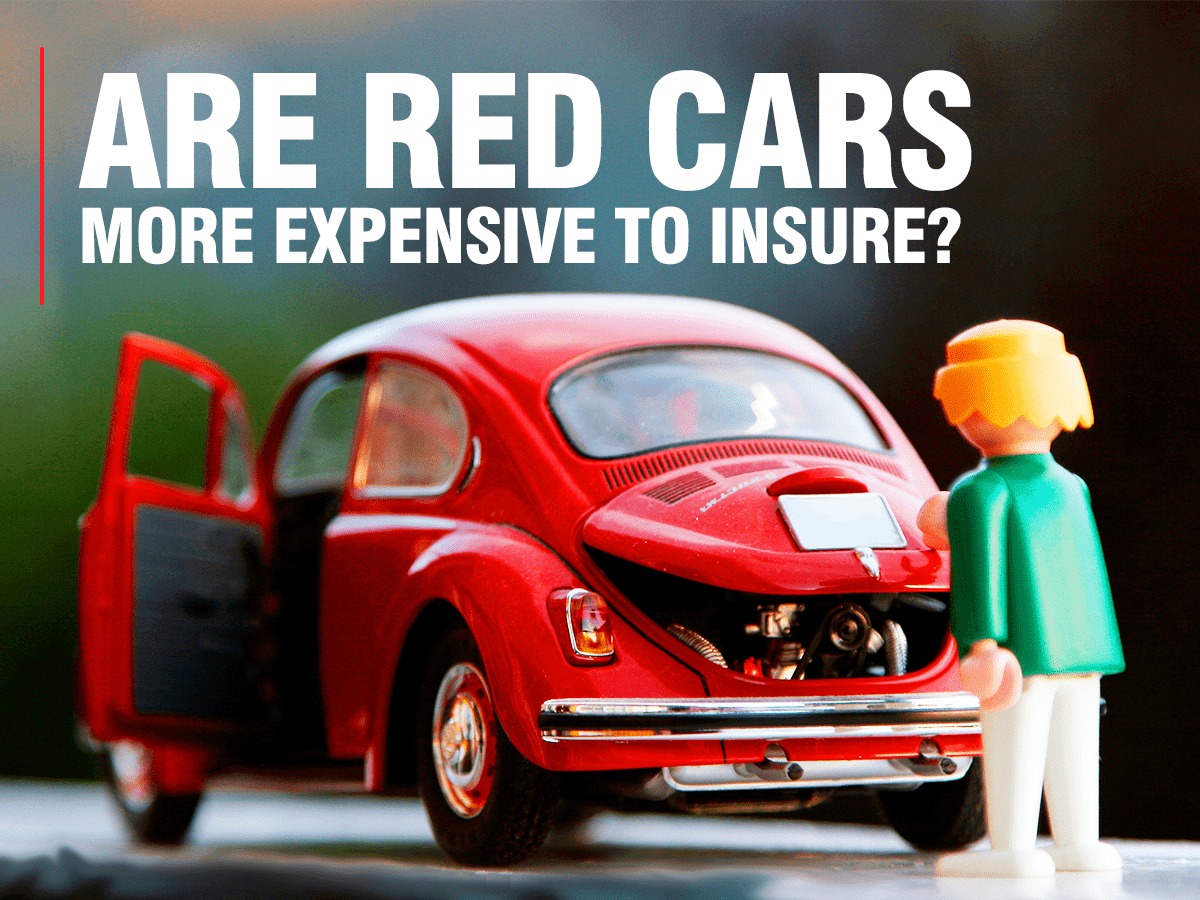Discover the essential requirements and answers to the question “do you need car insurance to drive” in our comprehensive guide.
Introduction to the importance of car insurance for drivers
Car insurance is a crucial aspect of responsible driving, providing financial protection in the event of accidents, theft, or damage to your vehicle. It not only safeguards your own interests but also protects other drivers, pedestrians, and property. In many places, having car insurance is a legal requirement, and driving without it can result in fines, license suspension, or even legal action. With the multitude of options available, understanding the importance of car insurance and finding the right policy is essential for every driver.
Why car insurance is important:
– Financial protection: Car insurance provides coverage for repairs, medical expenses, and legal fees in the event of an accident.
– Legal compliance: Many states require drivers to have a minimum amount of car insurance to legally operate a vehicle.
– Peace of mind: Knowing that you are protected in case of an unforeseen event can provide peace of mind while driving.
– Protection for others: Car insurance also covers damages and injuries to other parties involved in an accident, protecting you from potential lawsuits and financial liability.
By understanding the importance of car insurance, drivers can make informed decisions about their coverage and ensure they are adequately protected on the road.
The legal requirements for car insurance in different states
The legal requirements for car insurance vary from state to state in the United States. Each state has its own minimum coverage requirements for liability insurance, which covers the costs of injuries and property damage that you may cause to others in an accident. Some states may also require additional coverage, such as personal injury protection (PIP) or uninsured/underinsured motorist coverage. It’s important to familiarize yourself with the specific insurance requirements in your state to ensure that you are in compliance with the law.
Additionally, some states may have specific regulations regarding proof of insurance, such as requiring drivers to carry proof of insurance in their vehicles at all times. Failure to provide proof of insurance when requested by law enforcement or after an accident can result in fines or other penalties. It’s important to understand the specific documentation and proof of insurance requirements in your state to avoid any legal issues.
Furthermore, some states may have unique insurance laws or regulations that could impact your coverage options or premiums. For example, some states may have “no-fault” insurance laws, which require drivers to carry PIP coverage regardless of who is at fault in an accident. Understanding the specific insurance laws and regulations in your state can help you make informed decisions about your coverage and ensure that you are adequately protected in the event of an accident.
Explanation of the different types of car insurance coverage
When it comes to car insurance, there are several different types of coverage to consider. The most basic type of coverage is liability insurance, which covers the cost of damages and injuries you cause to others in an accident. This is typically required by law in most states. Collision insurance, on the other hand, covers the cost of repairing or replacing your own vehicle if it’s damaged in an accident, regardless of who is at fault. Comprehensive insurance covers damage to your car that is not caused by a collision, such as theft, vandalism, or natural disasters. These are just a few examples of the different types of coverage available, and it’s important to understand the differences and choose the right coverage for your needs.
Types of car insurance coverage
– Liability insurance: Covers damages and injuries you cause to others
– Collision insurance: Covers the cost of repairing or replacing your own vehicle in an accident
– Comprehensive insurance: Covers damage to your car not caused by a collision
– Uninsured/underinsured motorist coverage: Protects you if you’re in an accident with a driver who doesn’t have insurance or enough insurance to cover the damages
– Personal injury protection (PIP): Covers medical expenses for you and your passengers regardless of who is at fault
– Gap insurance: Covers the difference between the actual cash value of your car and the amount you still owe on a lease or loan if your car is totaled
Understanding the different types of car insurance coverage is essential for making informed decisions about your policy. It’s important to consider your individual needs and budget when choosing the right coverage for you.
The consequences of driving without car insurance
Driving without car insurance can have serious consequences. If you are caught driving without insurance, you may face fines, license suspension, or even jail time, depending on the laws in your state. In addition, if you are involved in an accident while driving uninsured, you may be held personally responsible for any damages or injuries, which can result in significant financial hardship.
Consequences of driving without car insurance:
- Fines and penalties
- License suspension
- Possible jail time
- Personal responsibility for damages and injuries in an accident
It’s important to understand the legal and financial risks of driving without insurance and to make sure you have the proper coverage in place before getting behind the wheel. Additionally, driving without insurance can also impact your ability to obtain affordable coverage in the future, as insurance companies may view you as a high-risk driver. It’s always best to comply with the law and protect yourself and others by maintaining the appropriate car insurance coverage.
Factors to consider when choosing car insurance
When choosing car insurance, there are several important factors to consider to ensure that you get the coverage that best meets your needs. One important factor to consider is the cost of the insurance policy. It’s important to compare quotes from different insurance companies to find the most affordable option that still provides the coverage you need. Additionally, consider the coverage options offered by each insurance provider. Some may offer more comprehensive coverage, while others may have more limited options. It’s important to choose a policy that provides the level of coverage you need for your specific situation.
Factors to consider:
– Cost of the insurance policy
– Coverage options offered by the insurance provider
– Reputation and experience of the insurance company
– Customer experience and satisfaction
– Availability of the insurance provider in your state
– Additional benefits or discounts offered by the insurance company
– Responsiveness and helpfulness of the customer service team
It’s also important to consider the reputation and experience of the insurance company. Look for a provider with a strong track record of customer satisfaction and a good reputation in the industry. Additionally, consider the availability of the insurance provider in your state. Some companies may have more limited availability, which could impact your ability to access the coverage you need. Finally, consider any additional benefits or discounts offered by the insurance company, as well as the responsiveness and helpfulness of their customer service team. By considering these factors, you can make an informed decision when choosing car insurance that best meets your needs.
The relationship between car insurance and vehicle registration
When it comes to the relationship between car insurance and vehicle registration, it’s important to understand that while car insurance is a requirement in most states, vehicle registration is a separate process. Car insurance is designed to provide financial protection in the event of an accident, while vehicle registration is the official process of recording a vehicle with a government authority. However, in order to register a vehicle, proof of insurance is often required. This means that car insurance and vehicle registration are closely linked, as one is often necessary for the other.
How car insurance and vehicle registration are connected
List
– In many states, proof of car insurance is required in order to register a vehicle.
– Car insurance is necessary to provide financial protection in case of accidents, which is why it is often a requirement for vehicle registration.
– Without proof of insurance, it may be difficult or impossible to register a vehicle, as it is a legal requirement in many states.
Credibility: The information provided is based on the legal requirements in many states and the connection between car insurance and vehicle registration. It is important to understand this relationship in order to ensure compliance with the law and to protect oneself financially in the event of an accident.
The options available for obtaining car insurance
When it comes to obtaining car insurance, there are several options available to drivers. The most common way to get car insurance is through a traditional insurance company. These companies offer a variety of coverage options, including liability, collision, and comprehensive insurance. Another option is to purchase non-owner car insurance, which is designed for individuals who do not own a vehicle but still need coverage when driving someone else’s car. Some insurance companies also offer specialty policies for rideshare drivers and renters who may need additional coverage beyond what is provided by the vehicle owner’s insurance.
Traditional Insurance Companies
– Offer a variety of coverage options
– Provide insurance for owned vehicles
– May offer discounts for bundling policies
Non-Owner Car Insurance
– Designed for individuals who do not own a vehicle
– Provides coverage when driving someone else’s car
– Can be more affordable than traditional insurance policies
Specialty Policies
– Available for rideshare drivers and renters
– Offer additional coverage beyond the vehicle owner’s insurance
– Can be tailored to specific usage needs
How car insurance protects drivers in case of accidents
Car insurance protects drivers in case of accidents by providing coverage for property damage and bodily injury to others. Liability insurance, which is required in most states, covers the costs of damage or injury that the insured driver causes to others. This can include damage to another person’s vehicle, medical expenses for injuries, and legal fees if the insured driver is sued.
In addition to liability insurance, drivers can also opt for collision and comprehensive coverage to protect their own vehicle. Collision coverage pays for repairs or replacement of the insured driver’s car if it is damaged in a collision with another vehicle or object. Comprehensive coverage, on the other hand, covers damage to the insured driver’s car from non-collision events such as theft, vandalism, or natural disasters.
Having car insurance also provides peace of mind for drivers, knowing that they are financially protected in the event of an accident. It can also help drivers comply with legal requirements and fulfill financial responsibility laws in their state.
Overall, car insurance is a crucial financial tool that protects drivers from the potential high costs of accidents and provides a safety net for unexpected events on the road. By choosing the right coverage options, drivers can ensure that they are adequately protected in case of an accident.
Common misconceptions about car insurance and driving
Common misconceptions about car insurance and driving often lead to confusion and misunderstanding. One common misconception is that you need your own insurance to drive someone else’s car. As discussed in the article, in most cases, the vehicle owner’s insurance policy will cover you as a driver, as long as you have permission to drive the car. Another misconception is that non-owner car insurance is expensive. However, as mentioned, non-owner car insurance policies are generally less expensive than traditional liability or full-coverage policies, making them a cost-effective option for those who frequently drive cars they don’t own.
It is also a common misconception that a non-owner policy conflicts with an existing insurance policy on a vehicle owned by another person. However, as explained, a non-owner policy does not cancel or conflict with an existing insurance policy on a vehicle owned by someone else. It provides additional coverage for the driver, without affecting the existing coverage on the vehicle.
These misconceptions can lead to confusion and may prevent individuals from obtaining the necessary insurance coverage. By understanding the facts about car insurance and driving, individuals can make informed decisions about their insurance needs and ensure they are adequately covered in any driving situation.
Conclusion highlighting the necessity of car insurance for all drivers
It’s important to remember that while you may not need insurance to drive someone else’s car in most scenarios, having your own insurance policy can provide added peace of mind and protection. Whether you’re driving a friend’s car, renting a vehicle, or using a car for ridesharing, having non-owner car insurance can help ensure that you are covered in the event of an accident.
Additionally, traditional car insurance policies that follow the car rather than the driver can provide coverage for uninsured drivers. However, it’s always best to check with the vehicle owner’s insurance policy and consider getting your own non-owner insurance policy if you frequently drive cars that you don’t own.
Key Takeaways:
- Car insurance follows the vehicle, not the driver, in most cases.
- Non-owner car insurance can provide added protection for those who frequently drive cars they don’t own.
- It’s important to check the specific details of the vehicle owner’s insurance policy and consider getting your own coverage if needed.
In conclusion, car insurance is a legal requirement in most places to drive on public roads. It provides financial protection in case of accidents and is essential for driving legally and responsibly. Non-compliance can result in fines or even license suspension. Always ensure you have the necessary coverage before getting behind the wheel.


